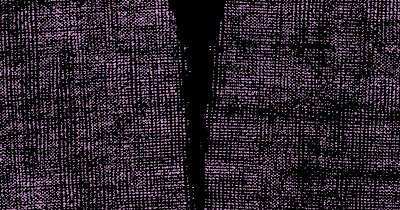 |
In ethics, the appeal to expand the “moral circle” typically requires moving from consideration of yourself to that of all of nature. |
What, in ethical terms, do we owe others, especially when lives are at stake? This is the crux of the ‘Drowning Child’ thought experiment posed by the contemporary philosopher, Peter Singer.
Singer illustrates the question to his students in this way:
You are walking to class when you spot a child drowning in a campus pond. You know nothing of the child’s life; and there is no personal affiliation. The pond is shallow, so it would be easy to wade in and rescue her. You would not endanger yourself, or anyone else, by going into the water and pulling the child out.But, he adds, there are two catches. One is that your clothes will become saturated, caked in mud, and possibly ruined. The other is that taking the time to go back to your dorm to dry off and change clothes will mean missing the class you were crossing the campus for.
Singer then asks his students, ‘Do you have an obligation to rescue the child?’
The students, without exception and as one might expect, think that they do. The circumstances seem simple. Including that events are just yards away. The students, unprompted, recognise their direct responsibility to save the flailing child. The students’ moral, and even pragmatic, calculus is that the life of the child outweighs the possibility of ruined clothes and a missed class. And, for that matter, possibly the sheer ‘nuisance’ of it all. To the students, there is no ambiguity; the moral obligation is obvious; the costs, even to the cash-strapped students, are trivial.
The students’ answer to the hypothetical about saving a drowning child, as framed above, is straightforward — a one-off situation, perhaps, whose altruistic consequences end upon saving the drowning child who is then safe with family. But ought the situation be so narrowly prescribed? After all, as the stakes are raised, the moral issues, including the range of consequences, arguably become more ambiguous, nuanced, and soul-searching.
At this point, let’s pivot away from Singer’s students and toward the rest of us more generally. In pivoting, let’s also switch situations.
Suppose you are walking on the grounds of a ritzy hotel, to celebrate your fiftieth anniversary in a lavish rented ballroom, where many guests gleefully await you. Because of the once-in-a-lifetime situation, you’re wearing an expensive suit, have a wallet filled with several one-hundred-dollar bills, and are wearing a family legacy watch that you rarely wear.Plainly, the stakes, at least in terms of potential material sacrifices, are much higher than in the first scenario.
If, then, you spot a child drowning in the hotel’s shallow pond nearby, would you wade in and save the child? Even if the expensive suit will be ruined, the paper money will fall apart from saturation, the family antique watch will not be repairable, and the long-planned event will have to be canceled, disappointing the many guests who expectantly flew in at significant expense?
The answer to ‘Do you have an obligation to rescue the child?’ is probably still a resounding yes — at least, let’s hope, for most of us. The moral calculus arguably doesn’t change, even if what materially is at risk for you and others does intensify. Sure, there may be momentary hesitation because of the costlier circumstances. Self-interests may marginally intrude, perhaps causing a pause to see if someone else might jump in instead. But hesitation is likely quickly set aside as altruistic and humanitarian instincts kick in.
To ratchet up the circumstances further, Singer turns to a child starving in an impoverished village, in a faraway country whose resources are insufficient to sustain its population, many of whom live in wretched conditions. Taking moral action to give that child a chance to survive, through a donation, would still be within most people’s finances in the developed world, including the person about to celebrate his anniversary. However, there are two obvious catches: one is that the child is far off, in an unfamiliar land; the other is that remoteness makes it easier to avert eyes and ears, in an effort at psychological detachment.
We might further equivocate based on other grounds, as we search for differentiators that may morally justify not donating to save the starving child abroad, after all. Platitudinous rationales might enter our thinking, such as the presence of local government corruption, the excessive administrative costs of charities, or the bigger, systemic problem of over-population needing to be solved first. Intended to trick and assuage our consciences, and repress urges to help.
Strapped for money and consumed by tuition debt, Singer’s students likely won’t be able to afford donating much, if anything, toward the welfare of the faraway starving child. Circumstances matter, like the inaccessibility; there’s therefore seemingly less of a moral imperative. However, the wealthier individual celebrating his anniversary arguably has a commensurately higher moral obligation to donate, despite the remoteness. A donation equal, let’s say, to the expense of the suit, money, and watch that would be ruined in saving the child in the hotel pond.
So, ought we donate? Would we donate? Even if there might appear to be a gnawing conflict between the morality of altruism and the hard-to-ignore sense of ostensible pointlessness in light of the systemic conditions in the country that perpetuate widespread childhood starvation? Under those circumstances, how might we calculate ‘effective altruism’, combining the empathy felt and the odds of meaningful utilitarian outcomes?
After all, what we ought to do and how we act based on what’s morally right not infrequently diverge. Even when we are confronted with stark images on television, social media, and newspapers of the distended stomachs of toddlers, with flies hovering around their eyes.
For most people, the cost of a donation to save the starving child far away is reasonable and socially just. But the concept of social justice might seem nebulous as we hurry on in the clamour of our daily lives. We don’t necessarily equate, in our minds, saving the drowning child with saving the starving child; moral dissonance might influence choices.
To summarise, Singer presented the ethical calculus in all these situations this way: ‘If it is within our power to prevent something bad from happening, without sacrificing anything of comparable moral importance, we ought, morally, to do it’. Including saving the life of a stranger to avoid a child’s preventable death.
For someone like the financially comfortable anniversary celebrator — if not for the financially struggling college students, who would nevertheless feel morally responsible for saving the child drowning on campus — there’s an equally direct line of responsibility in donating to support the starving child far away. Both situations entail moral imperatives in their own fashion, though again circumstances matter.
The important core of these ethical expectations is the idea of ‘cosmopolitanism’: simply, to value everyone equally, as citizens of the world. Idealistic, yes; but in the context of personal moral responsibility, there’s an obligation to the welfare of others, even strangers, and to treat human life reverentially. Humanitarianism and the ‘common good’ writ large, we suppose.
To this critical point, Singer directs us to the political theorist William Lecky, who wrote of an ‘expanding circle of concern’. It is a circle that starts with the individual and family, and then widens to encompass ‘a class, then a nation, then a coalition of nations, then all humanity’. A circle that is a reflection of our rapid globalisation.
Perhaps, the ‘Drowning Child’ thought experiment exposes divides between how we hypothesize about doing right and actually doing right, and the ambiguity surrounding the consistency of moral decision-making.













